At Discussion Group No. 8, National Assembly deputies from the National Assembly Delegation of Ca Mau province had many comments focusing on perfecting institutions, promoting the development of knowledge-based economy and improving the efficiency of management and use of resources.
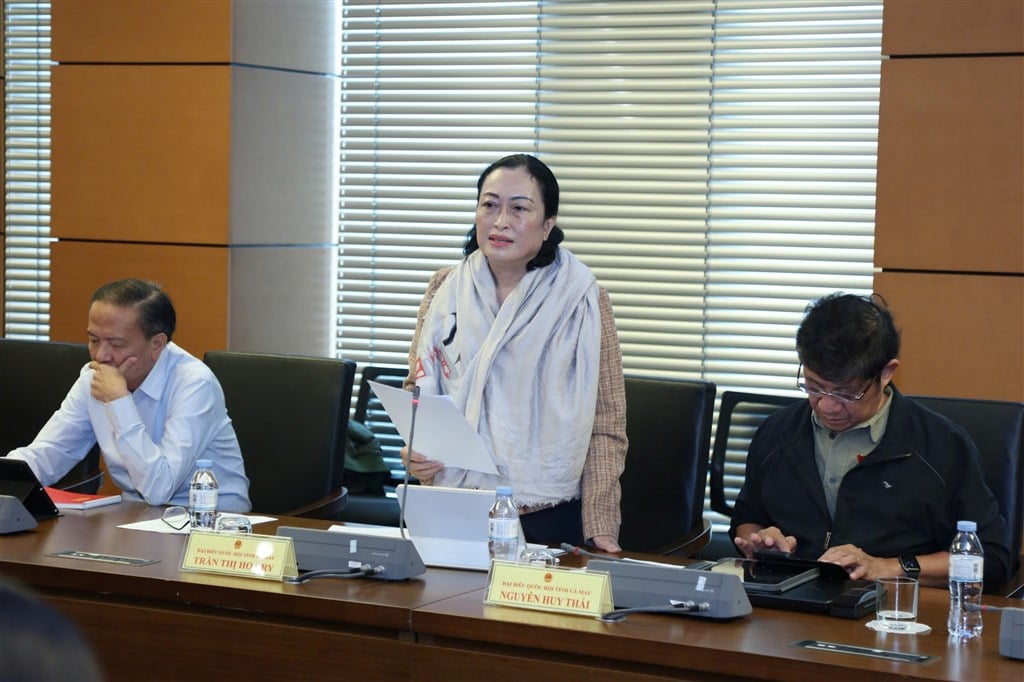
Delegate Tran Thi Hoa Ry: Strengthening social governance and supervision in preventing and combating waste
Vice Chairwoman of the National Assembly's Ethnic Council Tran Thi Hoa Ry said that the draft Law on Thrift and Anti-Waste (amended) was carefully prepared, inheriting many results from the National Assembly's supervision topics. However, the scope of the law needs to be expanded to new resources in the digital age such as: Knowledge, data, working time and high-quality human resources, avoiding invisible but in fact very large waste.
Delegate Tran Thi Hoa Ry emphasized the need to expand the scope of the Law on Thrift and Anti-Waste associated with community supervision and effective use of human resources.
Delegate Tran Thi Hoa Ry proposed adding regulations on saving and preventing waste in the use of human resources, especially for trained staff who have not been arranged and used effectively; at the same time, building a community monitoring mechanism, encouraging people, the Fatherland Front and mass organizations to participate in the process of monitoring public investment and managing state assets.
Delegate Tran Thi Hoa Ry emphasized that it is necessary to shift from the mindset of "management" to "administration" of public resources, considering efficiency and transparency as the measure; at the same time, clearly stipulate the mechanism of rewarding savings for units with effective implementation, creating motivation in the public sector.
Delegate Tran Thi Thu Dong: Saving must become a cultural value of the whole society.
Vice President of the Vietnam Union of Literature and Arts Associations Tran Thi Thu Dong agreed with the need to amend the Law on Thrift and Anti-Waste; and emphasized: "Thrift is not only a management requirement, but must also become a cultural value and public ethics."
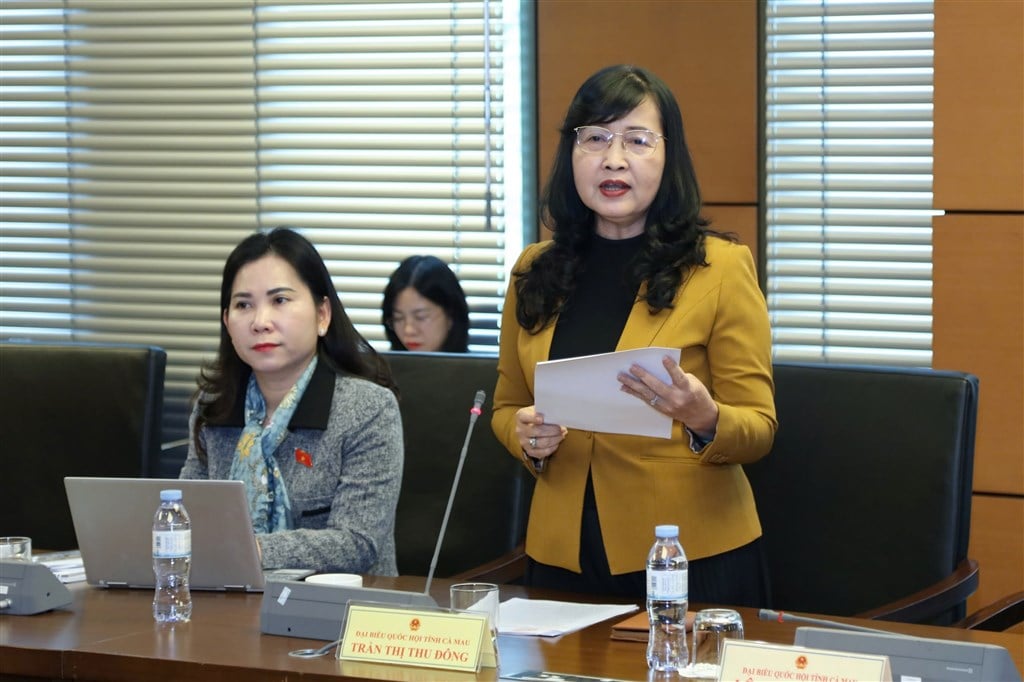
Delegate Tran Thi Thu Dong proposed building a culture of thrift and protecting those fighting against waste.
Delegate Tran Thi Thu Dong proposed clarifying the concepts of wasteful behavior, especially in land use, public investment, and organizing conferences and formal festivals; at the same time, not considering experimental and innovative activities with reasonable risks as wasteful in order to encourage officials to dare to think and dare to do.
Delegate Tran Thi Thu Dong proposed building a national savings culture index and educating savings habits in schools, to form sustainable savings and anti-waste behavior from an early age.
Delegate Le Thi Ngoc Linh: Flexible in family deduction regulations, expanding dependents
Speaking at the group, delegate Le Thi Ngoc Linh, Provincial Party Committee member, Vice Chairwoman of the Provincial Vietnam Fatherland Front Committee, Chairwoman of the Provincial Women's Union, said that amending the Law on Personal Income Tax is necessary and timely, to suit the reality of people's lives and price fluctuations.
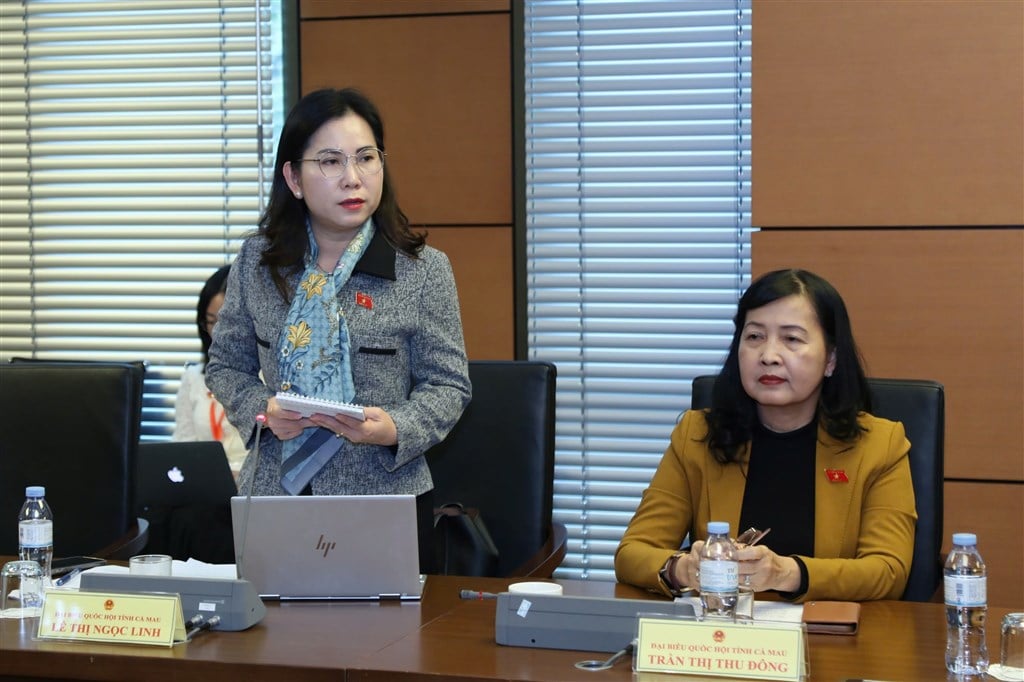
Delegate Le Thi Ngoc Linh proposed flexible adjustments to family deductions and expansion of dependents in the Personal Income Tax Law.
Delegate Le Thi Ngoc Linh proposed to stipulate a flexible mechanism in adjusting family deductions; at the same time, expanding the scope of dependents to include unemployed adult children or unemployed relatives.
Delegate Le Thi Ngoc Linh also noted the inconsistency between regulations on taxable income and tax-free income, especially for income from carbon certificates, which needs to be reviewed to ensure transparency, fairness and feasibility in application.
Delegate Dinh Ngoc Minh: Tax policy needs to accompany businesses, fight waste with technical solutions
Delegate Dinh Ngoc Minh, full-time member of the National Assembly's Economic and Financial Committee, said that to improve the effectiveness of implementing the Law on Tax Administration and the Law on Thrift and Anti-Waste, it is necessary to change the approach from "control" to "support" businesses.
Delegate Dinh Ngoc Minh pointed out that many businesses, when ceasing operations, face difficulties in tax settlement procedures, leading to fines or restrictions on operations. Therefore, the delegate suggested that the tax sector should have a clear and transparent process to guide and support businesses in completing their tax obligations, in order to reduce compliance costs and facilitate production recovery.
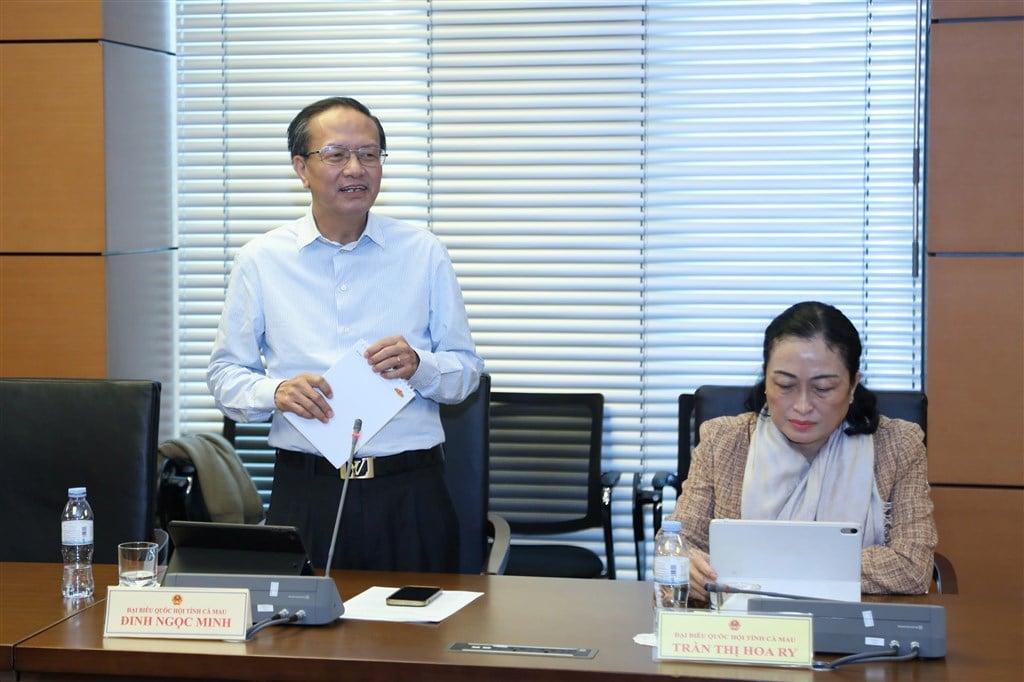
Delegate Dinh Ngoc Minh suggested that the tax industry accompany businesses.
Regarding the Law on Thrift and Anti-Waste, delegate Dinh Ngoc Minh emphasized the need to consider slow progress and technical errors as wasteful acts, especially in large public investment projects, affecting the budget and quality of works.
Delegate Dinh Ngoc Minh also proposed establishing a reward mechanism and sharing benefits from technical innovations to help save the budget, in order to encourage innovation and improve investment efficiency.
Source: https://www.camau.gov.vn/thoi-su-chinh-tri/dai-bieu-quoc-hoi-thuoc-doan-dai-bieu-quoc-hoi-tinh-ca-mau-gop-y-hoan-thien-03-du-an-luat-290559


![[Photo] Da Nang: Hundreds of people join hands to clean up a vital tourist route after storm No. 13](https://vphoto.vietnam.vn/thumb/1200x675/vietnam/resource/IMAGE/2025/11/07/1762491638903_image-3-1353-jpg.webp)



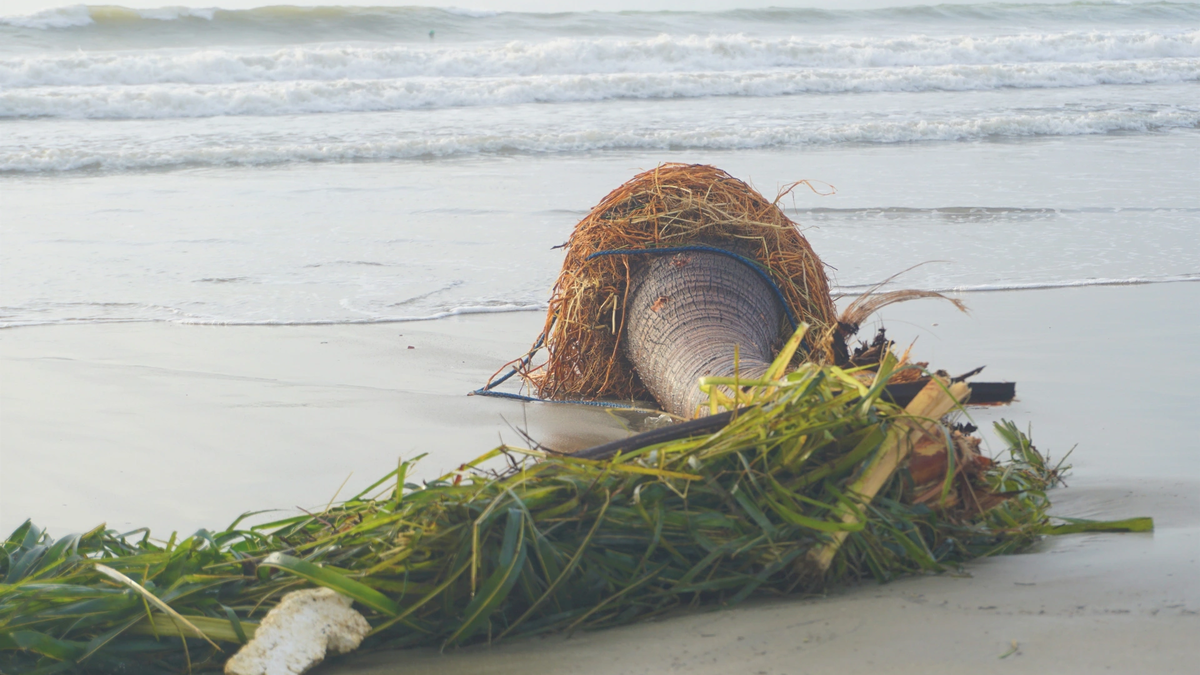



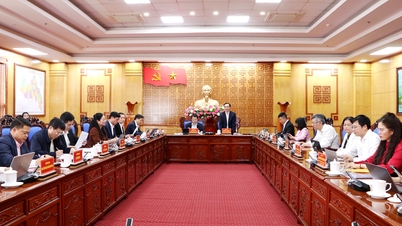



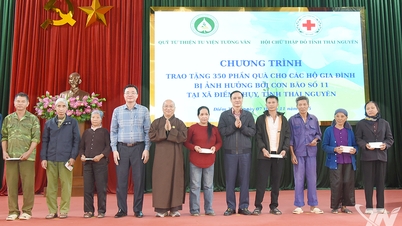






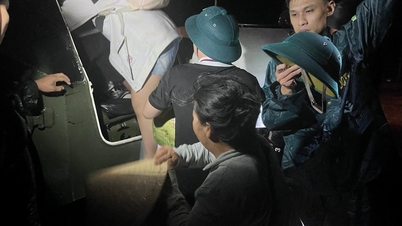



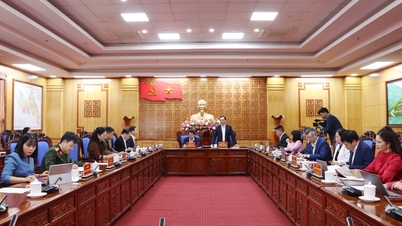
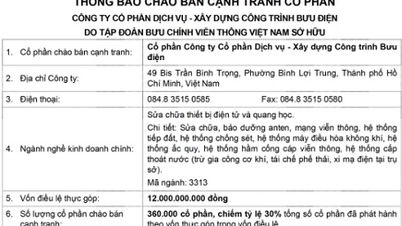


































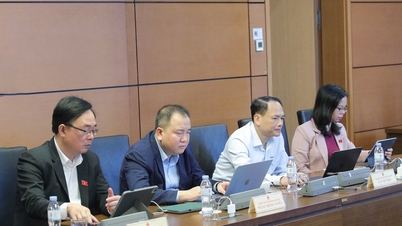

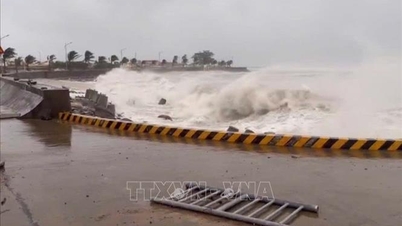

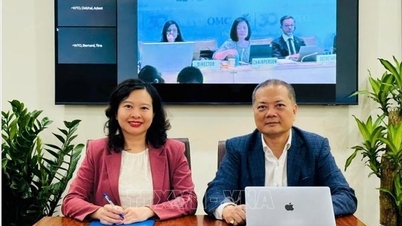
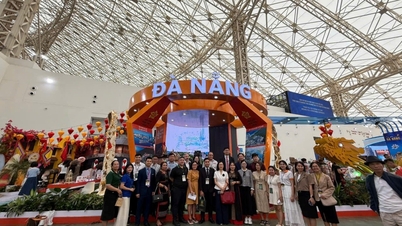



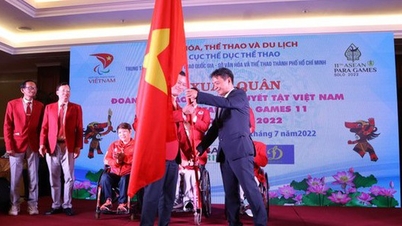
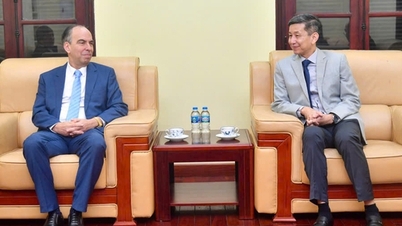
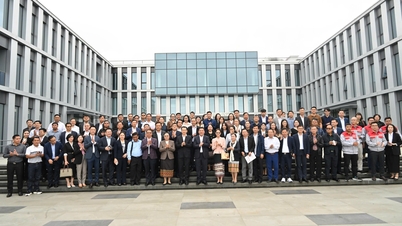






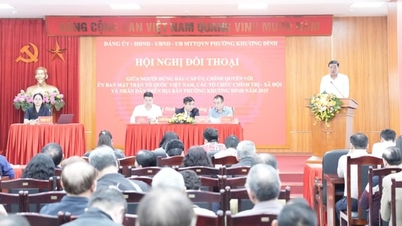

















Comment (0)